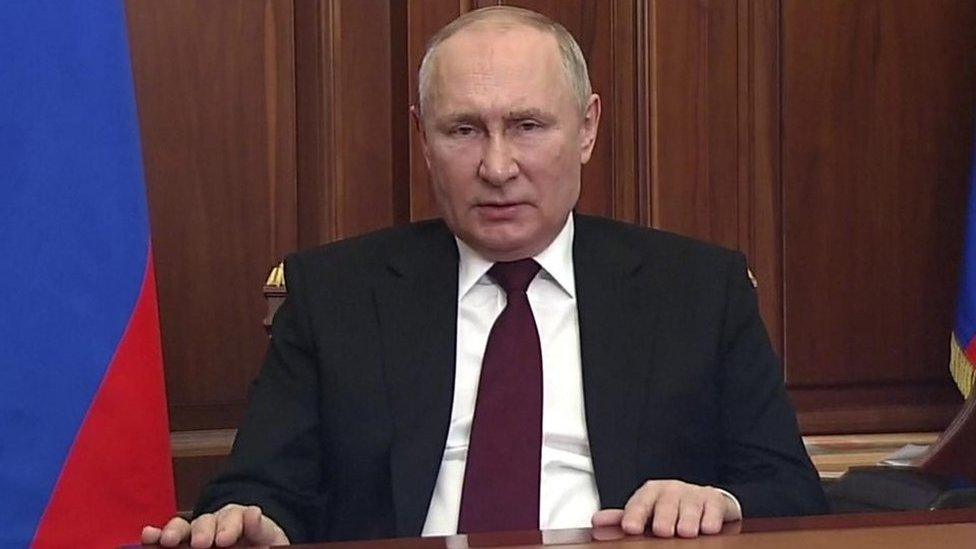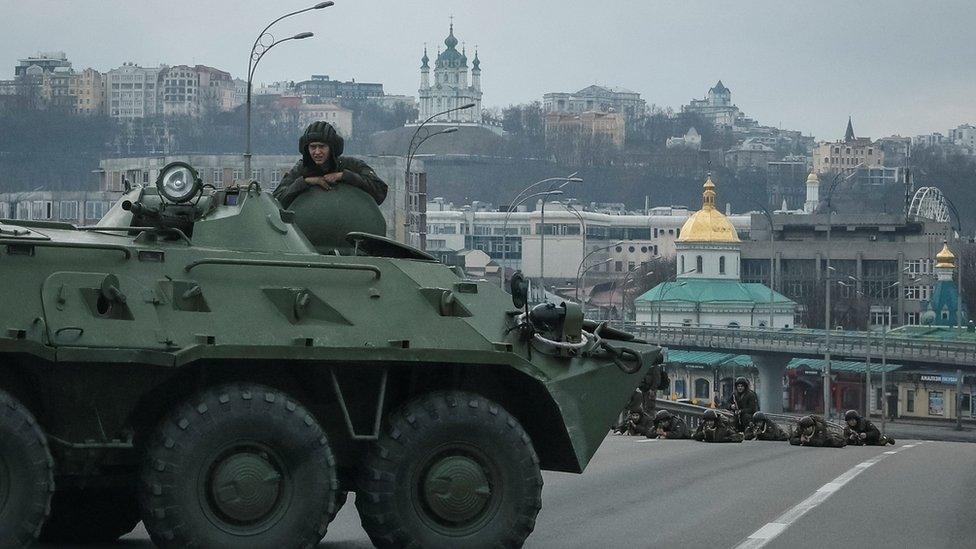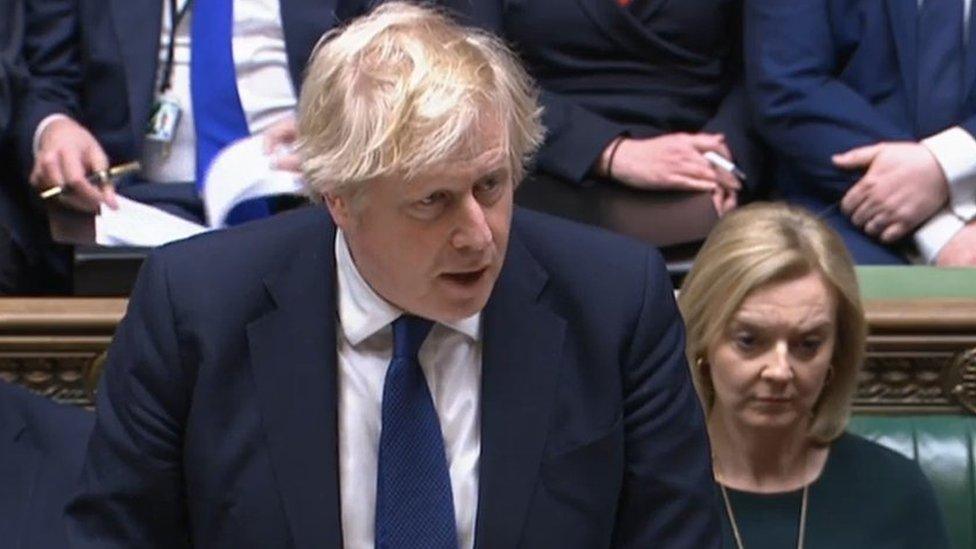Putin's energy shock: The economic realities of invasion
- Published

The economics of this invasion are extremely serious.
It might sound absurd given the apocalyptic backdrop of fighting near Chernobyl. But it really does matter, and could very plausibly herald a 1970s style energy shock. It will be felt in households up and down the country and across the continent.
And the economic theatre is also crucial to how this war pans out.
The combination of crude oil prices above $100 and wholesale gas prices around £3 per therm, would mean the peak in inflation heading to 8% or higher, and, importantly, lasting at very high levels for longer.
Crippling rises in household energy bills are already happening as a result of the existing rise in the average market gas price. It is now going still higher. There could be another rise in average bills of the same magnitude as is being seen now. Some analysts in the industry see the possibility of average annual bills hitting an incredible £3,000 a year by the Autumn.
Euros still flow
The market hit today occurred with no actual disruption to supplies from Gazprom through Ukraine.
Russia will not be punished for its invasion with an embargo on energy exports, as Saddam Hussein was after Iraq invaded Kuwait in 1990. Indeed, on some measures Russian gas exports to Europe are actually higher. The flows of euros from Western Europe to the Kremlin for its biggest export will continue, even as those countries decry what President Putin is doing with that money.
Russia is clearly getting hit in the markets. Its sovereign debt is being shunned, its stock market is crashing, its currency has hit record lows. The Russian Central Bank has deployed some of its $630bn war chest of currency and gold reserves to prop up the rouble.
So is there any economic intervention here which could change the fate of this conflict or minds in the Kremlin?
The answer is causing total economic chaos in Russia sufficient to change its political situation, and a rethink of the wisdom of the invasion in Moscow.
The Institute for International Finance, a think tank of the worlds biggest banks, said the latest set of sanctions will cause bank runs in Russia and "average Russians will feel the cost". With protests occurring in Russian cities, and being violently suppressed by authorities, the question is whether such chaos will be blamed on Putin's invasion, or the West. Will other factions in and out of the Kremlin be emboldened to move on the President?
Swift rebuttal
As in any war, the economic weapons can escalate.
Western nations could cut the Russian financial system out of the Swift banking communications network, plunging Russia into further isolation.
But President Putin can also physically limit supplies of energy to the West, sending energy prices stratospheric, shutting down factories in Europe. Although this would have long term consequences for his entire economic strategy.
This could last a long time, and plunge most of Europe into significant recession. The consequences for diplomacy, politics and lives are concerning enough. But the economic impact is very serious indeed.
Related topics
- Published25 February 2022

- Published24 February 2022

- Published24 February 2022

